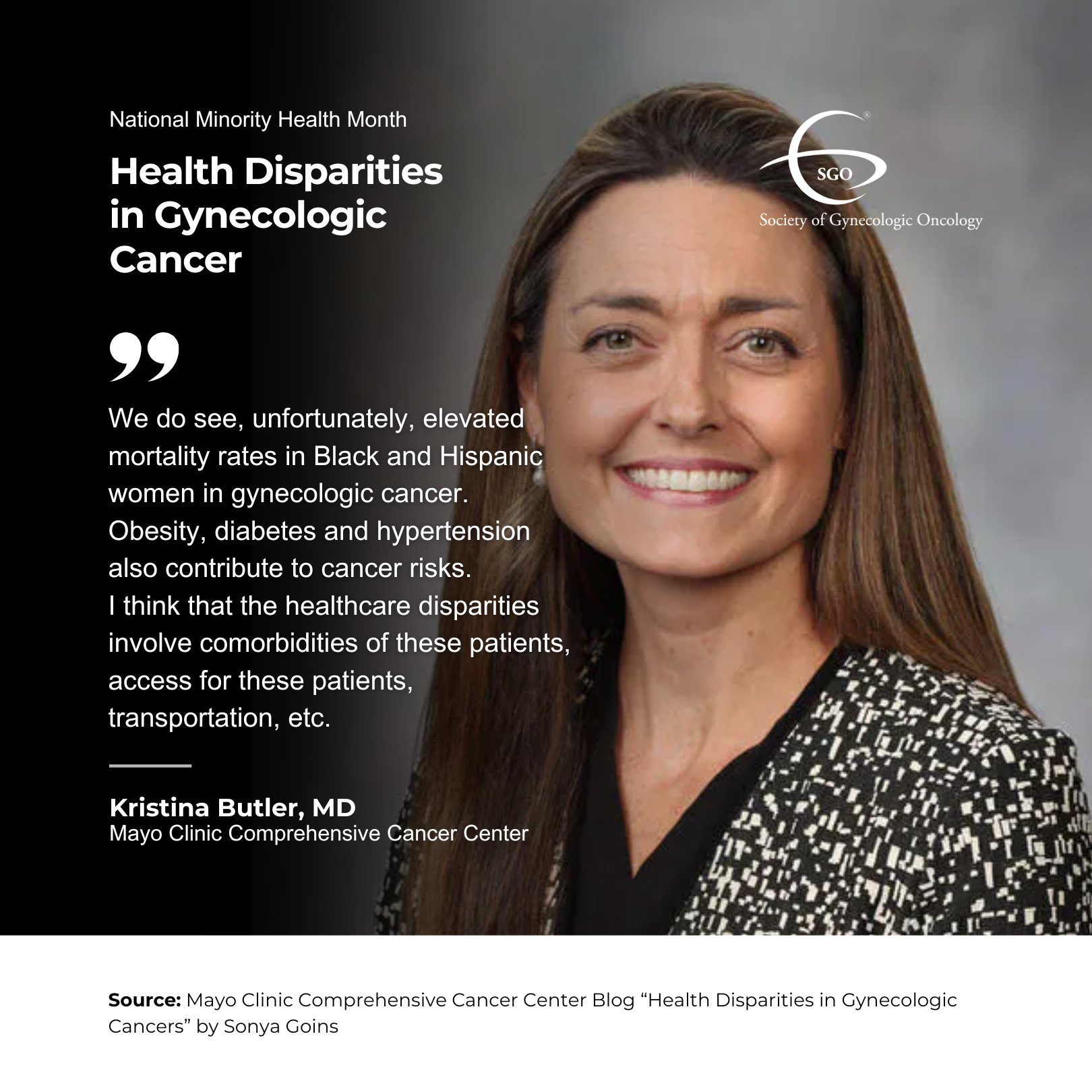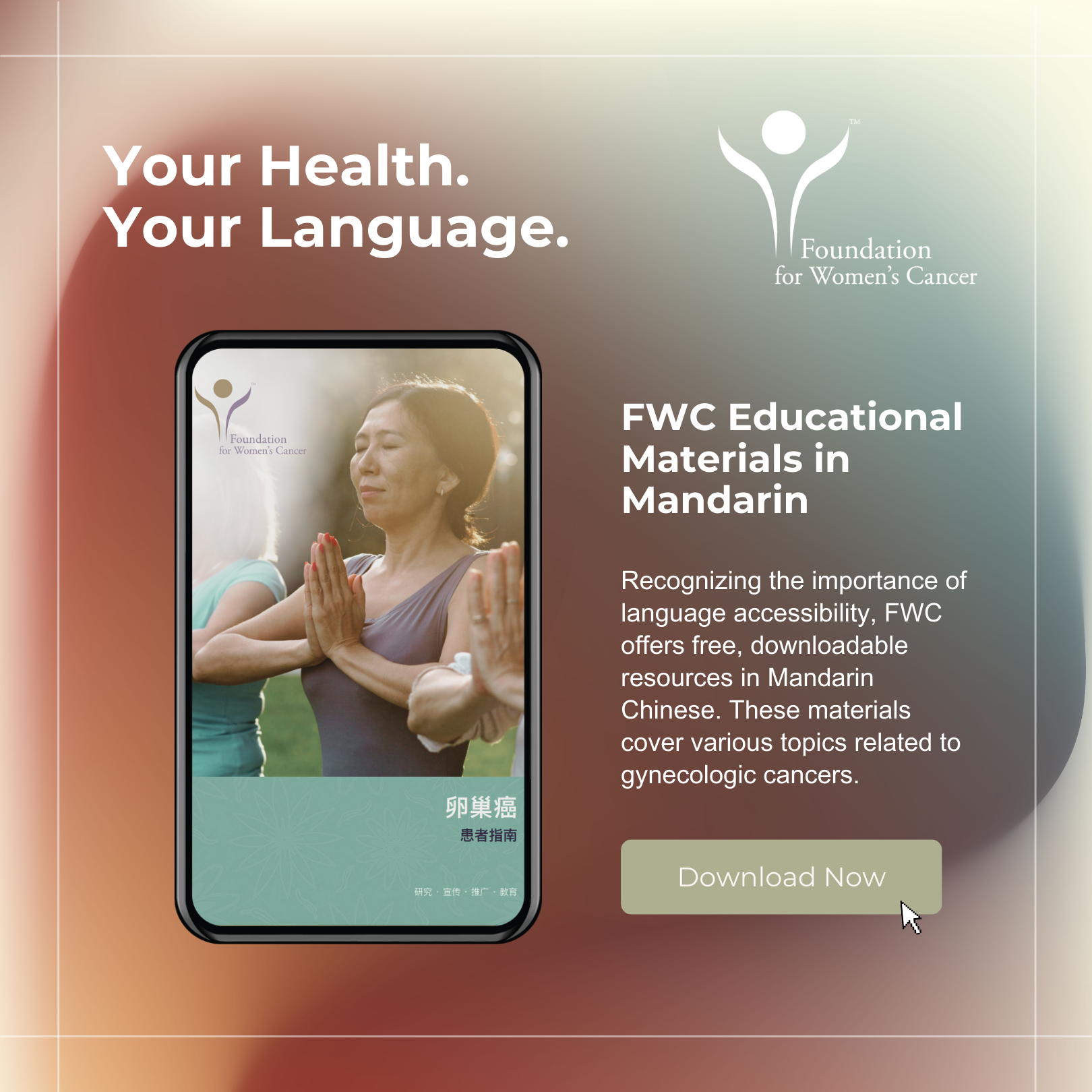Awareness Newsletter & Campaigns
The Foundation for Women’s Cancer Awareness newsletter and associated campaigns are a central component of our strategy to build a stronger, more connected community. I originated this initiative in my first year at the Foundation to leverage audience segmentation and tailor critical health information to specific marginalized groups and those most affected by disparities within the healthcare system. This approach ensures that we meet the unique needs of each group, providing targeted messaging that fosters engagement, awareness, and ultimately, better health outcomes. Through these efforts, we aim to empower individuals with the knowledge and resources they need to navigate their healthcare journeys and take action to reduce disparities. The Awareness newsletter regularly sees open rates between 40-50%.
National Minority Health Month
National Minority Health Month is an opportunity to highlight the importance of culturally specific information in addressing healthcare disparities. During this time, we focus on providing research from the Society of Gynecologic Oncology and other resources that communicate the critical nature of gynecologic cancers to diverse populations, particularly those who have historically been underserved or overlooked by mainstream healthcare initiatives. By delivering tailored messages that resonate with the unique cultural, social, and healthcare experiences of these communities, we help increase awareness and encourage early detection, which can save lives. This approach is central to ensuring that all individuals, regardless of background, have access to the information and support they need to make informed decisions about their health.






Hispanic Heritage Month
During Hispanic Heritage Month, FWC highlights the critical disparities in gynecologic cancer affecting Hispanic women, with a particular focus on the alarming cervical cancer disparity. Hispanic women are at a significantly higher risk for cervical cancer, with lower rates of early detection and treatment compared to other populations. This month (September 15-October 15) serves as an important moment to bring attention to these disparities and encourage action through education and awareness.
In line with this mission, FWC offers most of its educational resources for free as downloadable materials on the website, ensuring that all women, regardless of their background, have access to the information they need. A key focus of these resources is the importance of HPV vaccination as the most effective prevention method for cervical cancer. By emphasizing the role of HPV in cervical cancer development, we empower Hispanic women with knowledge about prevention and encourage them to take proactive steps in their healthcare journey.























Wellness in Focus: Combating Burnout in Gynecologic Oncology
This campaign was launched as part of our ongoing efforts to address the growing concern of wellness and burnout within the gynecologic oncology community. This initiative was born out of the State of the Society survey, which revealed alarmingly high rates of burnout among gynecologic oncology professionals. With these findings in mind, our campaign aimed to raise awareness about the mental health challenges facing those in this field, encourage proactive wellness strategies, and highlight the critical factors contributing to burnout, such as workload, emotional toll, and lack of support.
Throughout Mental Health Awareness Month, we conducted a month-long campaign to address these issues, featuring voices from our Wellness Committee as well as other influential members of the SGO community. We shared insights, personal stories, and expert advice to underscore the importance of self-care, boundaries, and seeking support. Additionally, we released resources that guided constituents toward practical strategies for maintaining wellness and avoiding burnout, with a focus on creating a supportive and sustainable work environment.
Our campaign extended beyond Mental Health Awareness Month, with additional content on World Mental Health Day, continuing the conversation around mental health and wellness in gynecologic oncology. Throughout the year, we also regularly shared content from our wellness blog series, which highlighted personal experiences, expert advice, and wellness tips from community members.
















Asian American and Pacific Islander Heritage Month
During Asian American and Pacific Islander (AAPI) Heritage Month, FWC wanted to emphasize the importance of understanding the diverse experiences within the AAPI community when it comes to gynecologic cancers. AAPI individuals are not monolithic, and each subgroup faces unique health challenges. For example, Vietnamese and Thai women are disproportionately affected by higher rates of cervical cancer, while Southeast Asian women, in general, experience the highest mortality rates compared to other Asian subgroups in the U.S.
It is essential to make these distinctions in our communications to ensure that both patients and healthcare providers are aware of these differences. Our communications were meant to empower patients to disclose important health information that can aid in early detection and personalized treatment plans. Providers, in turn, can tailor their care strategies to the unique needs of each subgroup.
As part of this campaign, I also interviewed several of our grant and award recipients to incorporate the voices of AAPI oncologists and healthcare professionals. They shared their personal experiences and insights about how their cultural backgrounds have influenced their path as oncologists and how they approach care for AAPI patients.















LGBTQIA+ Health Advocacy: Bridging the Gap in Gynecologic Oncology
In response to a clear gap in communications, these social carousels were created to amplify the voices of LGBTQIA+ healthcare providers and offer guidance to patients seeking gender-affirming care in the realm of gynecologic oncology. The goal was to provide content and resources that were previously lacking, helping both patients and providers navigate a landscape that often overlooks the unique needs of LGBTQIA+ individuals.
The initial phase of this effort began with a targeted social strategy on both SGO and FWC platforms, where we focused on sharing stories, insights, and advice from LGBTQIA+ healthcare providers. This strategy was designed to create a starting point for patients in the LGBTQIA+ community to find trusted, inclusive, and affirming healthcare providers who can offer the support they need for gynecologic care.
Our hope is that this social strategy will serve as a foundation for a more comprehensive approach in the future, where we can offer evergreen resources that are accessible and relevant for both patients and providers. As we continue to build on this initiative, we aim to create a sustainable resource hub that supports and educates both communities, driving progress toward a more equitable and inclusive healthcare system.
















Breast and Gynecologic Cancer: Understanding the Overlap
Many patients are unaware of their risk of gynecologic cancers, let alone the increased risk connection between gynecologic and breast cancer, and they also might not know that genetic factors may impact both. This campaign focused on raising awareness about this specific comorbidity and encouraging proactive testing, such as the CA 125 blood test. By addressing this gap in communication, I aimed to help patients understand the importance of discussing their full medical history with healthcare providers and taking early action to detect cancer early.











